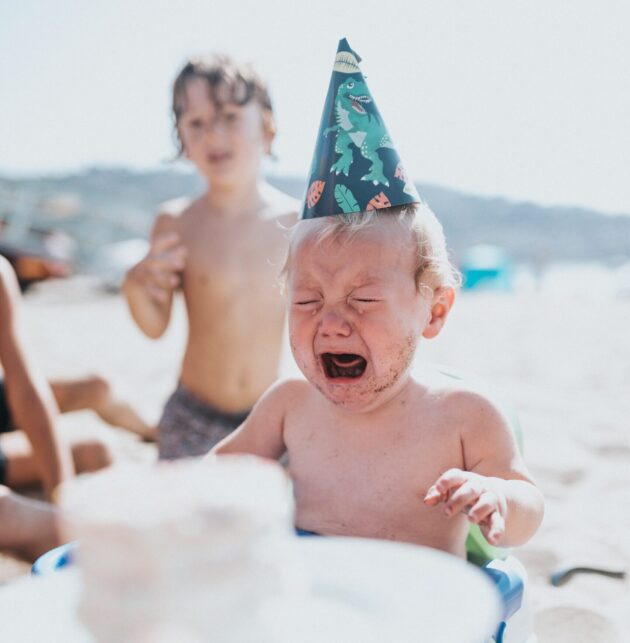One of the most important things parents can do to ensure good oral hygiene for their children is to establish healthy oral care habits from an early age. But a common question many parents have is: when can I let my kids brush their own teeth? The answer varies depending on your child’s development, manual dexterity, and ability to do a thorough job of brushing. Let’s explore this topic in detail.
The Early Years: Caring for Your Child’s First Teeth
Even before the first tooth appears, good oral hygiene is crucial. Parents should use a soft cloth or a warm washcloth to clean their baby’s gums. This helps to remove bacteria and prevent early gum disease. Once the first tooth emerges—usually around six months of age—it’s time to start brushing with a soft-bristled toothbrush designed for young children.
From this early stage, use a size of a grain of rice amount of fluoride toothpaste. Fluoride toothpaste is essential in cavity prevention and protecting a child’s oral health. As more baby teeth emerge, brushing children’s teeth should become a regular part of their daily routine. This is the easiest way to instill lifelong habits that promote healthy teeth and gums.
The Toddler Stage: Encouraging Independence While Supervising Brushing
By the time your child reaches their first birthday, it’s a great time to introduce them to their own toothbrush. Young children love imitating adults, so setting a good example by brushing together can make tooth brushing fun.
While toddlers may show interest in holding the toothbrush and attempting to brush their own teeth, they lack the fine motor skills needed to do a proper cleaning. Parents should continue to brush their child’s teeth at least twice a day, especially at night time, to remove plaque buildup and food debris from the tricky areas like back molars.
A good idea is to allow your child to hold the toothbrush and practice brushing, while you follow up with a thorough job to ensure all surfaces of the teeth are cleaned properly. This helps reinforce the importance of dental hygiene while still ensuring their teeth receive proper care.
Some ways to make brushing more engaging for toddlers include:
Using a favourite toy or character-themed toothbrush.
Singing a short song while brushing.
Using a mirror so they can see their own hands moving the toothbrush.
Praising them for their effort to build confidence and enthusiasm.
Preschool to Primary School: Developing Manual Dexterity for Proper Brushing
Between the ages of three and six years of age, children gradually develop better manual dexterity, allowing them to start taking more responsibility for brushing their own teeth. However, parental supervision remains essential to ensure they use the right amount of toothpaste (a pea-sized amount) and brush using proper brushing techniques, such as circular motions covering all surfaces of their teeth.
Using tools like a tooth brush timer or an electric toothbrush with a small head can make brushing more effective and enjoyable for kids. An electric toothbrush can be especially helpful in reaching back teeth and removing plaque buildup. Parents should also encourage children to use floss to clean between teeth where a toothbrush can’t reach. Teaching children how to floss early helps to prevent gum disease and dental caries.
At this stage, it’s helpful to talk to a health visitor or a paediatric dental office to get personalised advice on your child’s dental care. Every child develops at a different pace, so professional input can ensure that you’re guiding your child effectively.
When Can Kids Brush Their Own Teeth Without Supervision?
While young children may want to be independent, most oral health professionals recommend that parents continue to assist with brushing until their child is around seven or eight years of age. Even then, older children should still be monitored to ensure they’re doing a thorough job.
A good rule of thumb is to assess whether your child has developed the fine motor skills needed for proper cleaning. If they can tie their own shoes, they likely have the manual dexterity to brush effectively on their own hands. However, occasional check-ins are still important to reinforce proper techniques and ensure no excess toothpaste is swallowed. It can also be a good idea for parents to occasionally still brush their older children’s teeth for them, to ensure it’s being done really thoroughly, particularly in the evening on days when children have eaten a lot of sugar.
Some additional signs that your child is ready to brush independently include:
They consistently brush for the full two minutes without getting distracted.
They remember to brush both morning and night without reminders.
They reach all areas of their mouth, including back molars and tricky areas.
They understand the importance of using floss and rinsing properly.
Teaching Healthy Oral Care Habits
In addition to brushing, teaching children about other aspects of good oral hygiene is essential. Encourage them to:
Use floss daily to clean between teeth if the child is happy to do this. You may need to help them with this when they are young and will need to do it very gently.
Drink water instead of sugary drinks or fruit juice, which can contribute to dental caries.
Avoid fizzy drinks that have a high sugar content.
Limit sweet food that can increase the risk of tooth decay.
Visit pediatric dental offices regularly for check-ups and cleanings.
Paediatric dentistry experts emphasise that developing these habits at a young age is the easiest way to ensure lifelong dental care and prevent issues like gum disease and cavities.
Parents should also model good behavior by taking care of their own oral hygiene. When children see the whole family practicing good oral care habits, they are more likely to adopt them as well.
Making Tooth Brushing Fun and Engaging
If your child resists brushing, try making it a fun activity. Let them pick out their own toothbrush in their favorite color or featuring a favourite toy character. Singing songs, using a brushing app, or making a game out of it can also encourage participation. Providing plenty of praise and positive reinforcement helps children stay motivated and engaged in their own oral hygiene.
Consider implementing these fun strategies:
Use a reward chart with stickers for brushing twice a day.
Let them watch a short video about proper brushing techniques, such as this fun one from Hey Duggee:
Turn it into a family challenge where everyone brushes together.
Set a countdown timer to keep them engaged.
The Role of Diet in Children’s Dental Health
Proper brushing is only part of maintaining a child’s oral health. Diet also plays a significant role in cavity prevention and healthy teeth development. Avoiding excessive sugary drinks and sweet food is critical in reducing the risk of tooth decay. Instead, encourage a diet rich in vegetables, fruits, and calcium-rich foods that strengthen teeth.
Some helpful dietary tips include:
Offering water instead of fruit juice or fizzy drinks.
Providing crunchy fruits and vegetables to naturally clean the teeth.
Including dairy products like cheese and yogurt for strong teeth.
Avoiding sticky or gummy candies that can cling to tooth surfaces.
Final Thoughts
Establishing healthy teeth brushing habits from an early age is crucial for a child’s oral health. While young children should be encouraged to take part in brushing, parents should remain actively involved in the process to ensure proper cleaning. By the time children reach primary school, they can gradually take on more responsibility, but supervision is still necessary until they demonstrate the ability to brush effectively on their own. My children and now 6 and 8, and while I usually allow them to brush their own teeth under supervision, I do sometimes insist on doing it for them so I can ensure they are being cleaned really thoroughly. Don’t assume older children are brushing thoroughly enough every time. Proper teeth-brushing can be boring and tedious for children and they may well try and do it as quickly a possible. They only get one set of adult teeth, so it really is worth taking to time to ensure they are cleaning them properly even if they grumble about it!
By setting a good example, incorporating brushing into their daily routine, and making it an enjoyable experience, parents can help children develop lifelong habits for good dental health. And remember, regular visits to oral health professionals and peadiatric dental offices will provide additional guidance and support in maintaining a healthy smile for years to come.
Further Links and Resources
https://www.nhs.uk/live-well/healthy-teeth-and-gums/taking-care-of-childrens-teeth/
More Posts from Enjoy Every Minute You Might Find Useful
https://enjoyeveryminute.co.uk/2024/10/30/what-age-should-kids-start-going-to-the-dentist/
https://enjoyeveryminute.co.uk/2024/05/18/is-it-a-good-idea-to-let-my-sick-child-sleep-with-me/
https://enjoyeveryminute.co.uk/2025/02/03/15-top-tips-for-keeping-a-tidy-home-with-kids/


